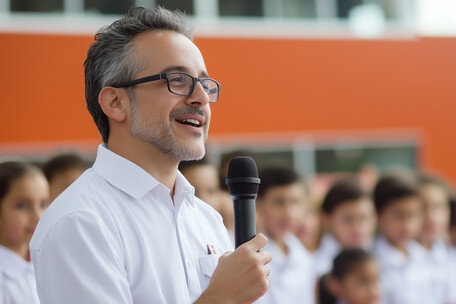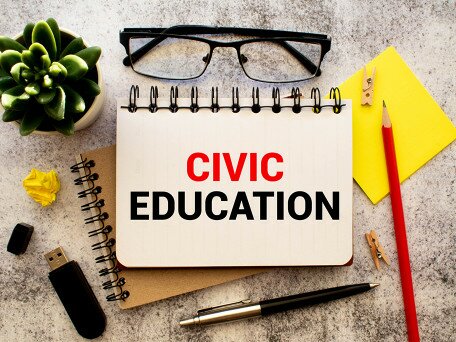Getting into the zone: Patterns, interplays, and outcomes of principal flow
- Project Scheme:
- General Research Fund
- Project Year:
- 2024/25
- Project Leader:
- Prof Chen, Junjun
- (Department of Education Policy and Leadership)

This project will produce a principal-first website and a practical blueprint for supporting principal flow building.
Principalship has been always considered a challenging profession, which has certainly become even more so in the post COVID pandemic (Harris & Jones, 2020; PI & Walker, 2023). This phenomenon has inevitably threatened the well-being and performance of individual principals and schools (Pollock & Wang, 2020), and most often, principal well-being worldwide has been sacrificed for education quality (Marsh et al., 2022; PI et al. 2023a). This issue is undoubtedly relevant for Hong Kong principals currently experiencing rationally and emotionally professional dilemmas stemming from political, social, and academic challenges and uncertainties (PI, 2023). Principal work-related flow, therefore, has become a pressing line of research as flow has been shown to be critical for simultaneously enhancing individual and organizational well-being and effectiveness in the organization literature (Csikszentmihalyi, 2003, 2019; Liu & Bakker et al., 2023). Moreover, the notion of ‘principal first’ has recently been placed onto the agenda to encourage the role model effect of principals, to cultivate principal flow in this case, thereby seeding the establishment of a school flow cascade (Bakker, 2005). Therefore, principals need to be positioned firstly at the center of cultivating their flow so that they can model their staff and students for promoting flow aiming for desirable well-being and success of principals and schools.
Under such circumstances, it is essential to better understand principal flow and how its influential drivers (e.g., proactive self-determination strategies, personal resources, job resources, and job demands) interactively affect their flow, and, thereafter, performance and well-being outcomes (Bakker & van Woerkom, 2017; Demerouti & Bakker, 2023). Principals then may better utilize available personal and job resources when job demands increase, which reflects the current situation facing by principals. However, it seems that there is no literature on principal flow. Our review project on educator flow (PI & Li, under review) found that no literature on principal flow has been published up to now. There is a pressing need to put efforts into principal flow in Hong Kong and internationally.
Framed by the self-determination theory of flow (Bakker & van Woerkom, 2017) supplemented by the job demands-resources theory (Demerouti & Bakker, 2023), this project consists of four main aims in response to the aforementioned concerns. The first aim explores the patterns of principal workedrelated flow. The second aim identifies the interplays between personal resources (e.g., resilience), job resources (e.g., social support), challenge job demands (e.g., job complexity), and hindrance job demands (e.g., role ambiguity) on principal flow. The third aim examines the role of proactive self-determination strategy (e.g., strengths use) of principals that navigates the interplays of personal resources, job resources, and job demands on principal flow. The fourth aim is to examine the mediating role of principal flow between the said linkages and performance and well-being outcomes. To achieve these four aims, the project will utilize an explanatory sequential mixed-methods design with quantitative and qualitative strands. The quantitative strand consists of a survey study with a sample of approximately 400 principals in Hong Kong. The qualitative strand contains an interview study with 24 principals to further interpret and explore the findings from the quantitative strand.
This project will result in four major contributions. First, the project will provide empirical insights to advance the knowledge construction of principal flow through establishing a conceptual framework linking salient self-determination strategies, personal resources, job resources and demands, principal flow, and well-being and performance outcomes. Second, the project will provide implications to advance the self-determination theory of flow and the job demands-resources theory by addressing recent recommendations from the two theories. They consist of human beings being inherently proactive, separating challenge and hindrance demands, and exploring the interplays of resources and demands. Third, this project will respond to recent international and local policy initiatives regarding promoting well-being at work. This project will enable policymakers to identify policy priorities to better craft related public policies (i.e., Hong Kong professional standards for principals) for cultivating principal flow to establish flow-promotion schools in Hong Kong, which may enhance public health and work productivity in Hong Kong and beyond in the long run. Fourth, the project results will enable principals to better utilize their self-determination strategy to negotiate with available resources and to navigate everyday challenges to optimize individual and school wellness and success. This project will produce a principal-first website and a practical blueprint for supporting principal flow building, particularly as proactive self-determination strategies and personal/job resources and demands identified are malleable for future solution-focused interventions in Hong Kong and beyond.








